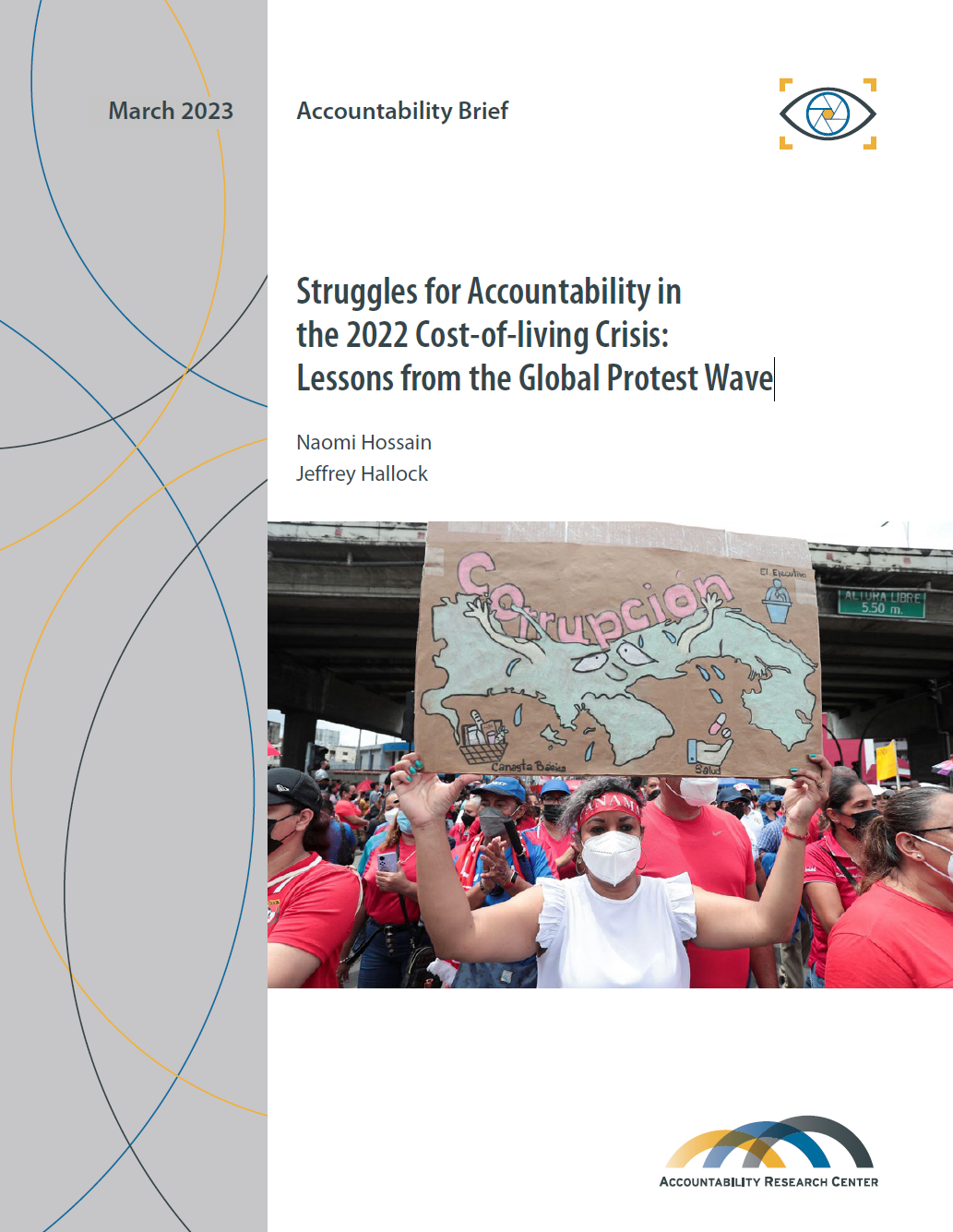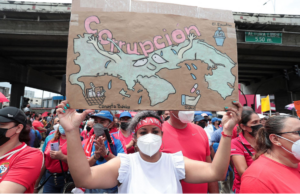
Struggles for Accountability in the 2022 Cost-of-living Crisis: Lessons from the Global Protest Wave
Date: April 2023
Author(s): Naomi Hossain and Jeffrey Hallock
Publication type: Accountability Brief
Published by: Accountability Research Center
The cost-of-living crisis of 2022 led to world-wide protests about prices and shortages of energy and food. Drawing on a longer study of the 2022 protests, this Accountability Brief argues that the protests were not only an indicator of failures in the global economy, but also of accountability failures at multiple levels. It focuses on why energy and food protests are matters of concern for accountability in international development, and suggests appropriate responses.
Protests are a risky strategy for defending citizens’ basic rights.
Fear and desperation drew thousands to the streets to protest the cost-of-living crisis, even though many risked encountering state violence to do so. For many protestors, public demonstrations were the only way they could make themselves heard. In contexts of global economic volatility, human rights defenders should specifically monitor violence against those protesting the cost-of-living crisis, efforts to curb the right to protest, and freedom of the media to report on popular protests.
Failure to address protestors’ grievances can breed political mistrust and polarization.
Governments that failed to act were seen as corrupt and unaccountable, and episodes of protest fed into political polarization. Aid agencies pressing for economic reforms during crises should undertake political economy analysis and engage citizens in policy design, and be better prepared with support for social protection systems to insulate citizens against price spikes and shortages.
People are resisting the effects of unaccountable energy policies.
Most 2022 protests were about energy, often featuring complaints that corruption was causing price rises. Energy policymaking takes place in exclusive and exclusionary spaces, from which ordinary citizens and representatives of civil society are excluded. Governments and multilateral agencies need to involve citizens in energy policy reforms if they want them to pass. Without civic participation in energy policymaking, transitions to renewable energy are unlikely to be either smooth or just.
Multilateral institutions have a responsibility to consult and engage citizens in their lending programs.
Food and energy protests are frequently triggered by reforms proposed by multilateral agencies. Protests are a clear sign of failure to achieve meaningful engagement, and of a lack of transparency and accountability. Multilateral institutions bear some culpability for the violence and disruption that ensues. Multilateral institutions ought to monitor the outcomes of their reforms. Data from protests should be included in monitoring progress towards Sustainable Development Goal 16 in support of peace, justice, and strong institutions.

A demonstrator holds a placard with a map of Panama and the word “corruption” during a protest to demand the government steps in to curb inflation and reduce fuel and food prices. Panama City, July 12, 2022. (Reuters/Erick Marciscano).
Naomi Hossain is a political sociologist and Research Professor at the Accountability Research Center at the School of International Service at American University. Her research focuses on the politics of inclusive development, or how people get the public services they need. In international collaborations, she has researched food and fuel riots, the politics of public service delivery, closing civic space, and the politics of Bangladesh’s development success. Some of her work can be seen here.
Jeffrey Hallock is a doctoral student at American University researching anti-corruption reforms. His work focuses on elite contestation of reforms and the international community’s role in supporting anti-corruption efforts.
